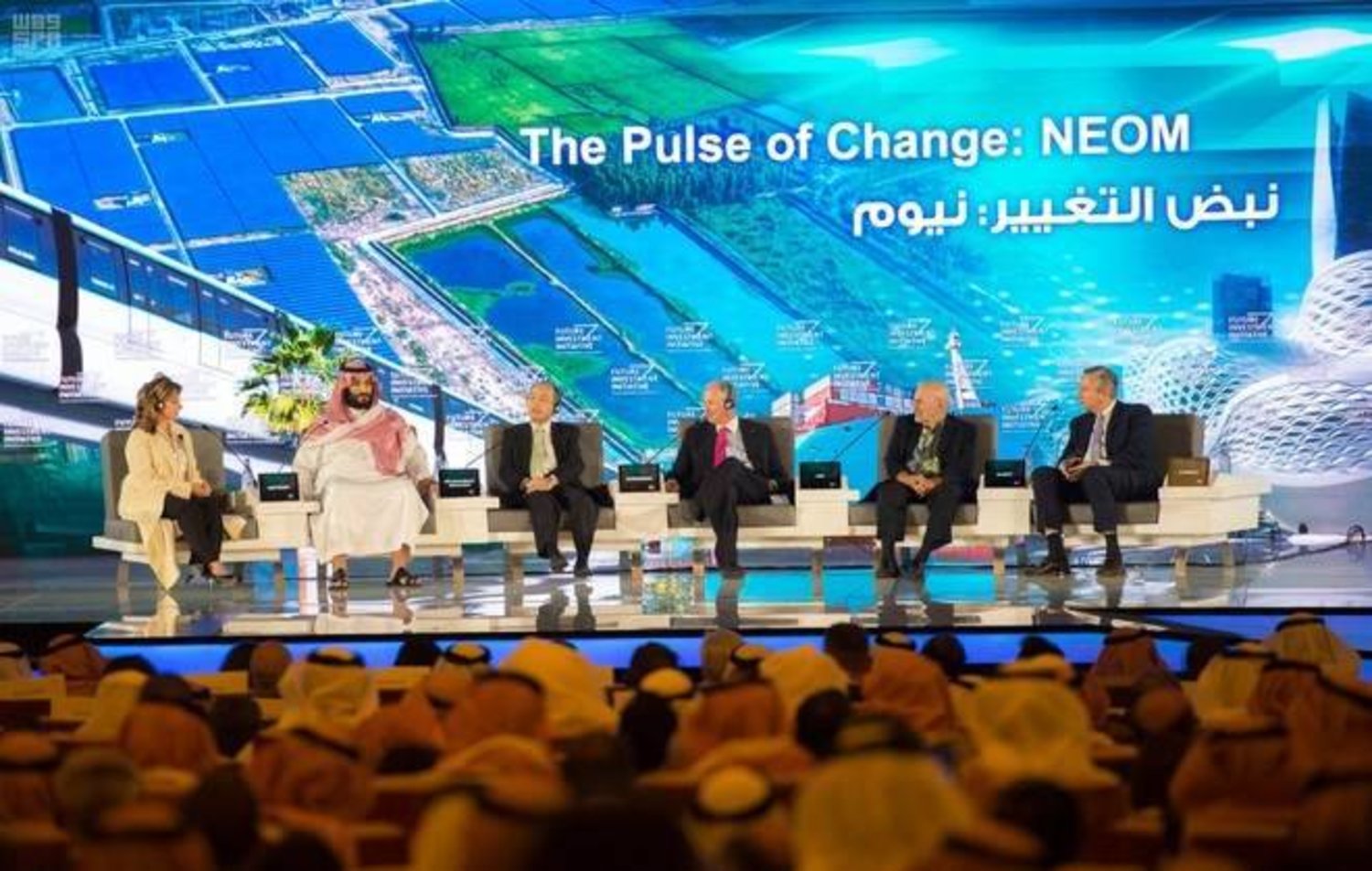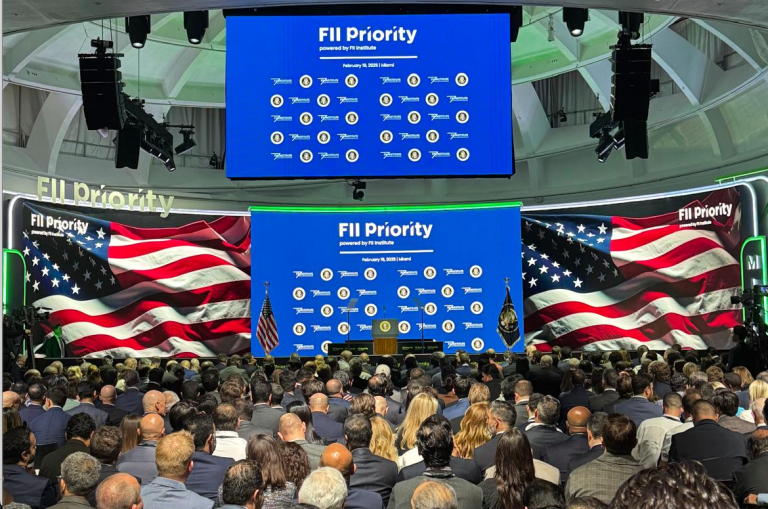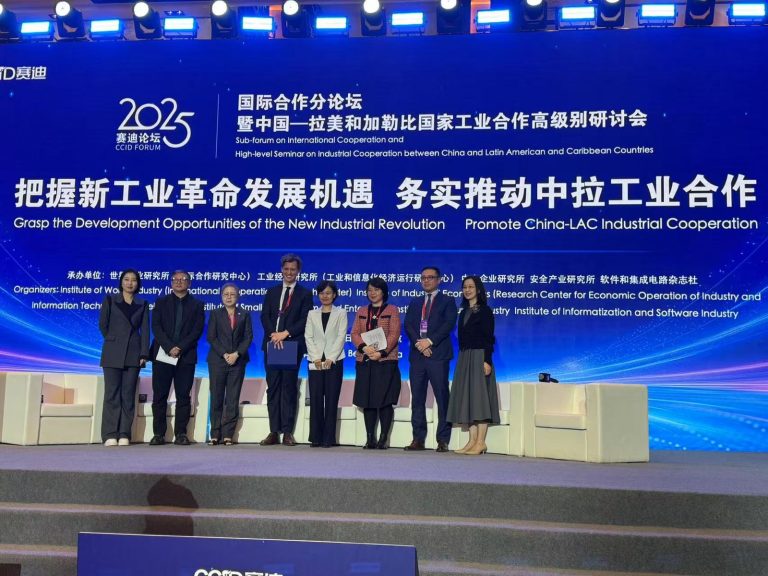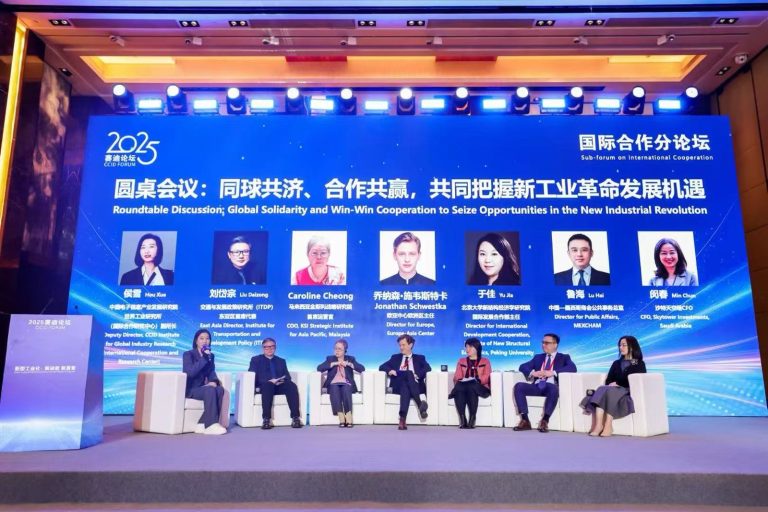With the world’s attention focused on Riyadh, where the “Future Investment Initiative” conference proceedings kick off on Tuesday, global and local investors emphasize the importance of harnessing the opportunities that the conference will provide in the realm of the new economy, technology, the blend of energy, ammonia, and green hydrogen. This is to bolster international alliances that enhance Saudi leadership in steering the global economy and to develop strategies for tackling challenges and exploring future prospects.
In this context, American investor in the field of green energy, hydrogen, and zero carbon, Eric Fang, CEO of Skytower Investments, in an interview with ‘The Middle East,’ anticipates that the initiative will focus on the impact of investment on humanity. It will serve as an interactive program designed to assist investors in realigning the paths for their companies and the global economy. Additionally, it aims to develop new strategies for understanding the greater challenges and opportunities of the new era. Fang looks forward to exploring new markets and expanding the boundaries of economic growth while adhering to environmental, social, and governance standards. He emphasizes the necessity for green development, including infrastructure, industry, manufacturing, supply chains, and natural mineral resources, to be built upon strong governance, leading to its positive impact on humanity.
According to Fang, the conference’s recommendations to address economic, investment, and trade challenges should involve a vision that involves adding value by creating a platform to showcase ways to reduce carbon pollution before it escapes into the atmosphere, through reengineering pollution from manufacturing processes, transportation, energy generation, and construction.
He added: ‘We must do everything in our power to achieve the globally agreed-upon goal of carbon neutrality by 2060 and a proactive approach to its removal. Therefore, we strongly emphasize that the development of new markets must have a strong government framework to lead the development process, regardless of the industries.’
Furthermore, Fang continued: ‘In collaboration with our investment partner from China, the EIPC Energy Investment Professional Committee (EIPC), a subsidiary of the China Investment Association, which launched the ‘Zero Carbon’ movement in China in January 2020, we issued an industry-level guide and many recommendations for the zero carbon standard within China, which were approved by the central government. This is the same initiative we are discussing with the Kingdom and which constitutes our initial entry aimed at placing the green transition at the forefront of our investments and developing the supply chain and generations of green energy.’ Fang states, ‘There’s no physical property or product that has captured the human imagination concerning the potential of the new energy era like hydrogen, which has long been regarded as a suitable alternative to petroleum distillation products in powering the world.’
Fang wonders, “How can hydrogen production be another circular and economically viable process with added value for the Kingdom? It begins with methane, which is produced in very large quantities around the world from various sources, including the exploration and development of the oil industry in Saudi Arabia.”
According to Fang, hydrogen is an extremely useful commodity but requires special handling due to its flammability. Ammonia, which consists of two hydrogen atoms and three nitrogen atoms, can be considered a non-flammable carrier of hydrogen. Additionally, ammonia can be broken down into hydrogen at the combustion point.
He continued: “Ammonia is an industrial raw material, but new technology will allow it to become the means to transport and convert hydrogen into green fuel in the new energy era. Saudi Arabia will be at the forefront of this new energy era with the need for policies to achieve carbon neutrality in a short time. Currently, world leaders aim to achieve a 29-fold increase in carbon capture by 2030, and the Saudi initiative could potentially become a global initiative capable of transforming carbon from an external economic factor into a common commodity.”
Furthermore, Skytower Investments announced its collaboration with local partners in the special economic zone, such as King Abdullah Economic City, to build a complex for hydrogen industry to manage various types of hydrogen and ammonia technologies and manufacturing processes. This aims to ensure the presence of a modern area capable of accommodating technological advancements, while aligning with the global and Saudi trend of promoting artificial intelligence and robotics.
In light of this new reality, Fang believes that economic and geopolitical tensions increase the complexity of global focus, pointing out that the Kingdom has an opportunity to lead the balance in capital mobilization and pursue discovered opportunities while fulfilling its commitments to the future of humanity through adopting artificial intelligence and developing robotics via research and development programs.
On his part, Saudi businessman, the head of Saudi Excellence Holdings and the investor in the field of green energy and zero carbon, Abdullah bin Zaid Al-Mulaihi, confirmed that the conference in its seventh edition is a global opportunity that will set the compass of the global economy from Saudi Arabia towards future Saudi achievements and developments in various fields, including green energy, technology, and carbon. He expected that the conference would attract Saudi-American-Chinese investments.
Al-Mulaihi, who is the Saudi partner in Skytower Investments the legitimate heir to the Saudi-American-Chinese alliance for green energy, stated that the rapid development in Saudi Arabia has become a benchmark for global civilization and a model for development and achievement plans. The gathering of global investment leaders in Riyadh sends a message that “the future starts from the Kingdom,” as the conference will address pivotal issues that concern the world, including climate change, the role of governments, and transformative potential of technology, education, and healthcare.
Al-Mulaihi pointed out that the American-Saudi-Chinese alliance will benefit from the insights gained at the conference to launch its first projects scheduled to begin in early 2024. He explained that the conference will accelerate the pace of major projects in the field of carbon as a standard for future investment based on environmental, social, and governance considerations. By working with the program, he expects that Skytower Investments will benefit from the conference’s investments as a partner in the field of green investment policies and practices.
He added, “Through this partnership, we can make our carbon-neutral standards work to shape the future industry standards in the Kingdom by working closely with the investment initiative. This program is highly exciting as it can seamlessly integrate the zero-carbon investment goal with the current and future goals of the fishing industries department.”
According to Al-Mulaihi, the seventh edition of the conference, launching from Riyadh, comes at a time when global focus is currently directed towards extremely important topics such as artificial intelligence, robotics, sustainable education, and healthcare. The energy transition goal requires tripling investments in clean energy infrastructure by the end of the current decade.
Al-Mulaihi emphasized the investment opportunities in adopting industrial artificial intelligence, which not only transforms the fabric of humanity but also stimulates a wave of innovations and legal considerations ranging from risk management to national security. Skytower Investments is working on integrating the development of artificial intelligence into its industrial entry into the Kingdom.



